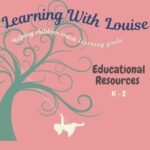By: Cindy Amos
Most adults can remember listening to Mother Goose rhymes or singing them on repeat as a child. For some reason, most of my kindergarten students have never heard of a nursery rhyme. Yet, rhyming skills are a key component to the beginning of phonemic awareness that is a subcomponent of phonological awareness (Yopp & Yopp, 2000). It is the beginning of word play. Nursery Rhymes, rhyming books and songs are fun ways to keep kids engaged when teaching a child about rhymes. So how can teachers help students without prior knowledge of nursery rhymes?
First read them nursery rhymes. Teach them about rhymes, and help them identify them. I do we do can be a game for rhyming. This may take longer for students that are just being introduced to rhymes. I use a hand signal for students to tell me they heard a rhyme during a story being read. Later, during the discussion we talk about what the rhymes were and try to make nonsense words that also rhyme the given pair (Yopp & Yopp, 2000).
Once a child knows about rhyming words they can begin learning about word families. Word families can also be a fun game for students to try to think of words for a family. When I began teaching word families were commonly displayed in classrooms. One of the ways teachers back then would create these list would be to put a rime on the board. A rime is the ending rhyming part of a word ( -at, op, ug, etc.). Students then would try to think of real words that rhyme. I eventually just let them brainstorm words and then we went back and discusses each word as real or nonsense. Real words were also given a definition and if needed I like to look them up on the internet to display a picture for them to make a mental picture in their brains. Remember that vocabulary is a key component to learning to read proficiently so any chance you get to increase their vocabulary during the day is a gold star moment.
Shanahan stated that some research points to rhyming becoming better as children learn to read. This makes sense as the more sounds a child knows the more words they can make to rhyme. The key is to make all the skills automatic as all skills intertwine with the next skills development. If you are needing some fun activities to help you child, click the link to download a free set of rhyming practice activities. Rhyming Practice
References
Shanahan, T. (2015). Is rhyming ability important in reading, Shanahan on Literacy, https://www.shanahanonliteracy.com/blog/is-rhyming-ability-important/in/reading
Yopp, H. & Yopp, R. (2000), Supporting phonemic awareness development in the classroom, The Reading Teacher, 54(2)130-143.
